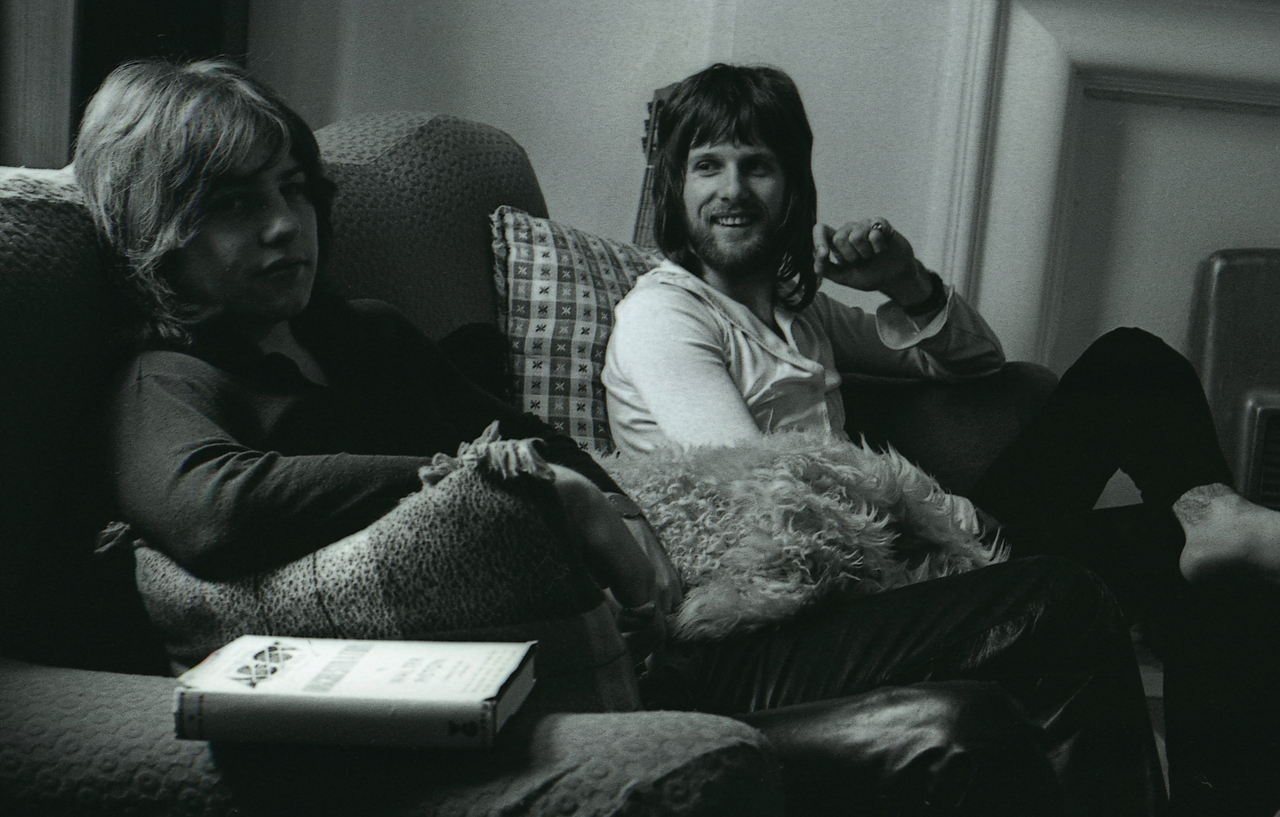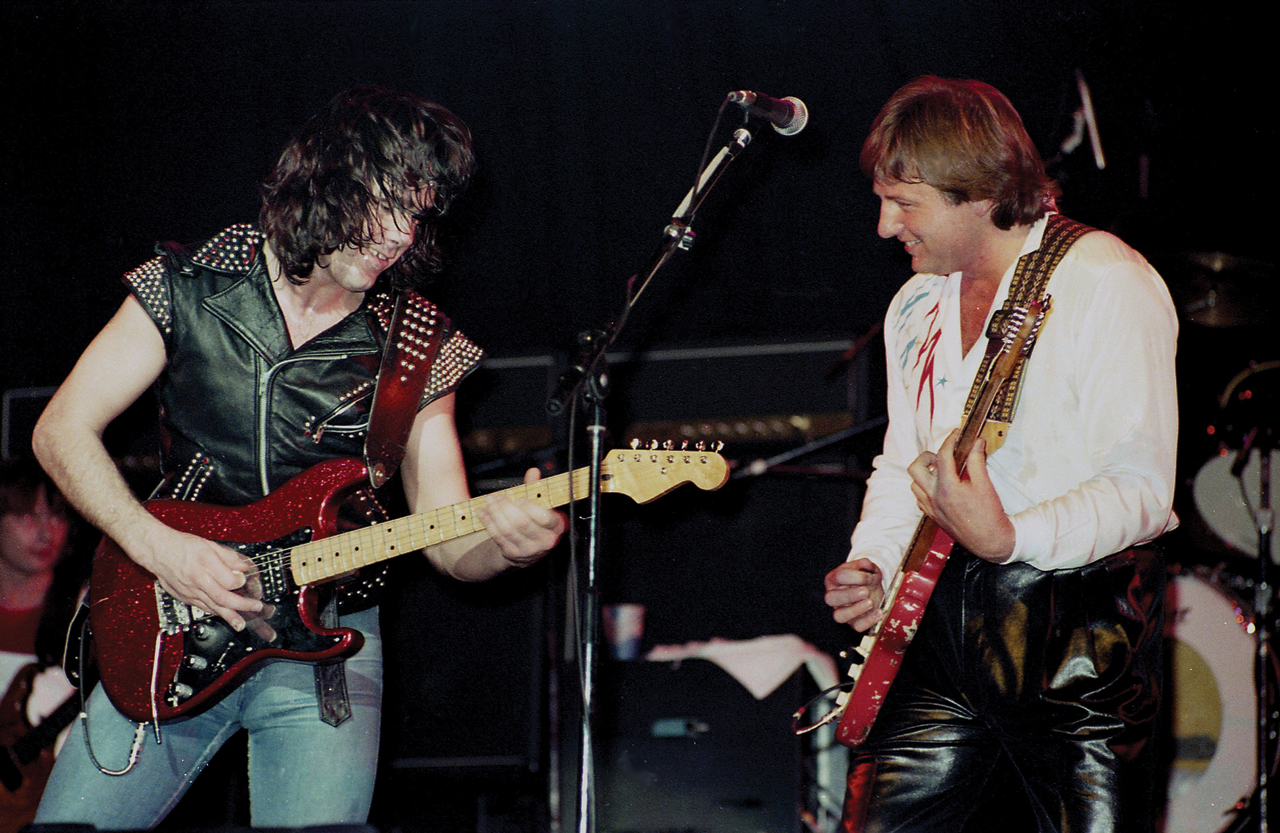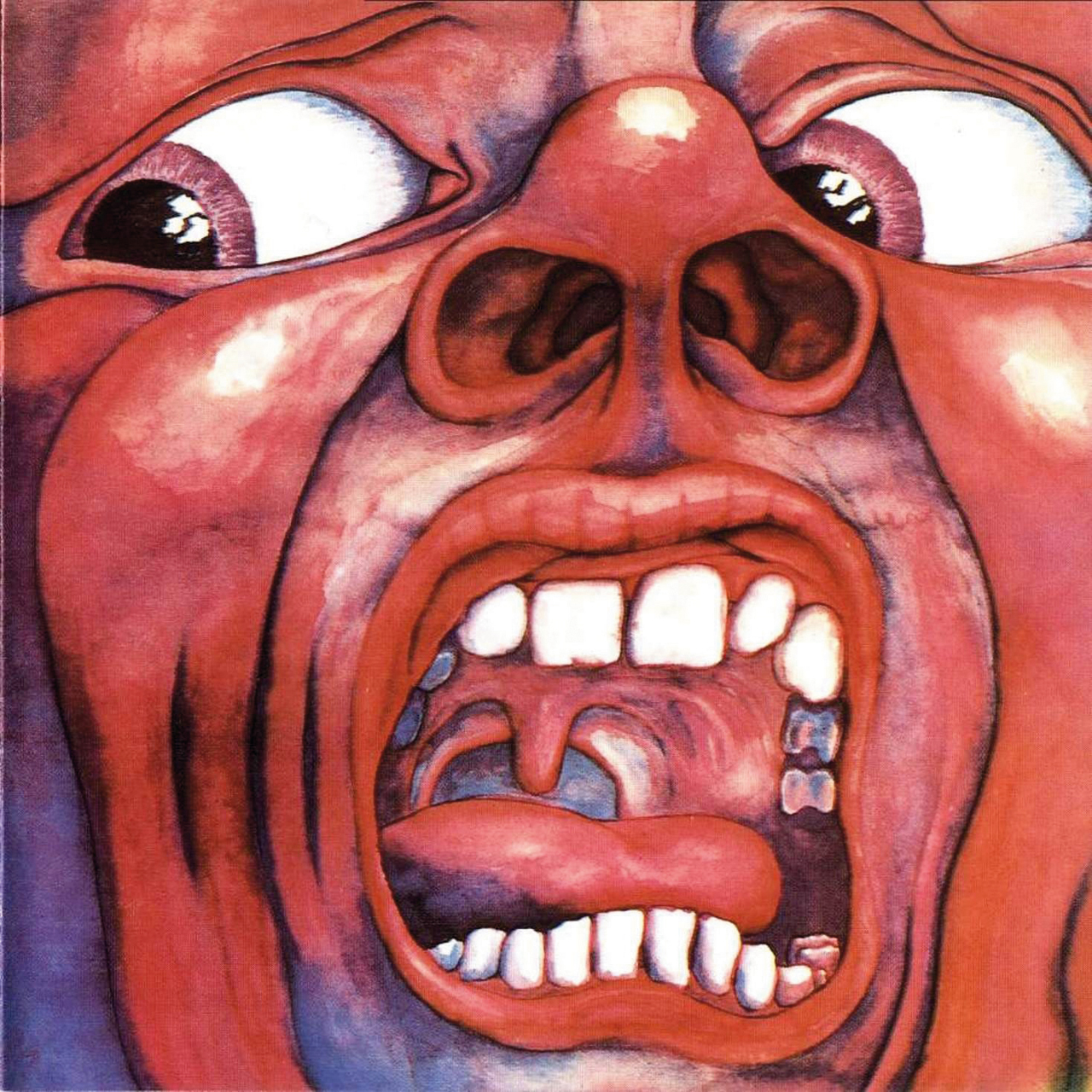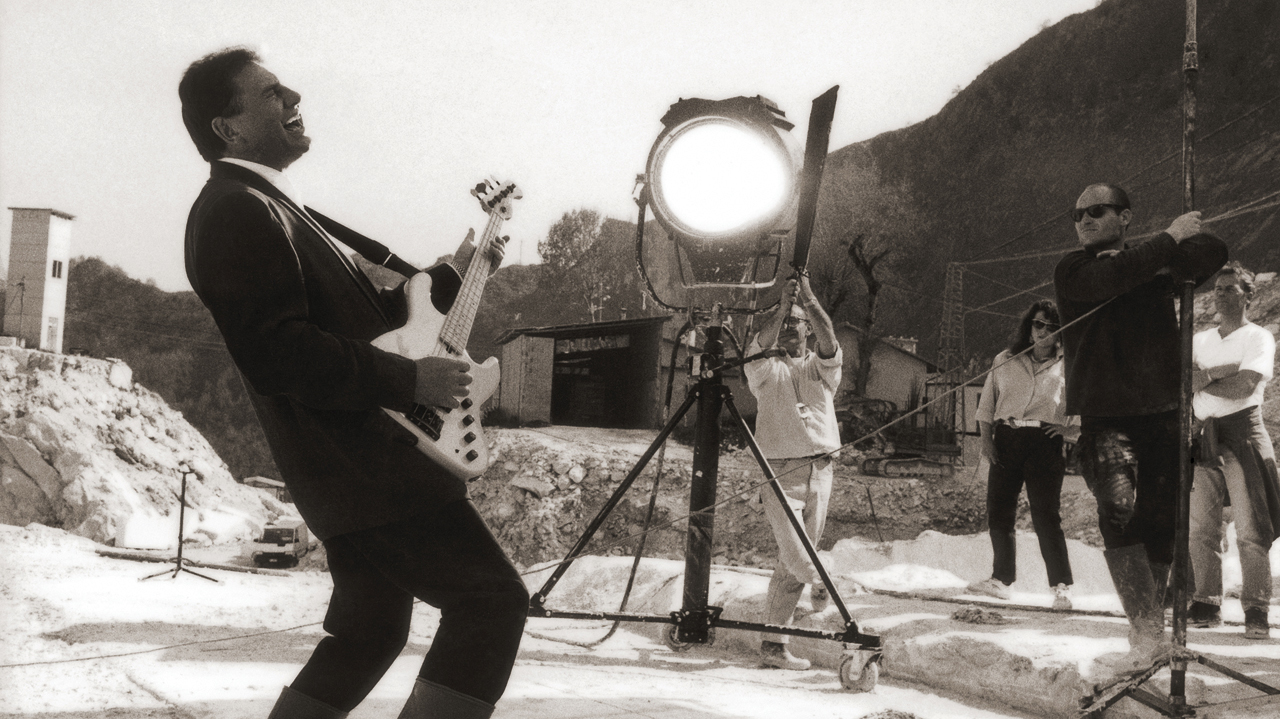Greg Lake was a rare talent. While the progressive scene has always been full of erudite musicians who are at home tackling sophisticated compositions, what made Lake stand apart was that not only could he command attention in this sphere, but he was also comfortable blending poppier and more melodic elements. He was adept at adapting all aspects of music, gliding easily and convincingly between styles.
Lake initially came to attention playing guitar with The Gods, whom he joined in 1967. But he quit within a year, simply because his flourishing abilities needed a better forum in which to take flight. And he got the best possible opportunity, joining his fellow Dorset friend Robert Fripp (the pair had received guitar lessons from Don Strike) in King Crimson, switching to bass when asked to be part of the original line-up.
His contributions to the band’s 1969 debut In The Court Of The Crimson King were invaluable. Not only was he on guitar and vocals, but he also had an involvement on the lyrical side, and when producer Tony Clarke walked from the album, Lake took a major role on that side of things as well. His diversity as a singer was shown to strong effect – it certainly helped bring to life the power of 21st Century Schizoid Man and, by contrast, the sedate mournfulness of Epitaph.
His artistic powers were growing, and he quickly moved on to perhaps the most renowned project of his career, when teaming up in 1970 with Keith Emerson and Carl Palmer to form supergroup Emerson Lake & Palmer. But before he completely immersed himself in this exciting venture, he did sing on all but one track for the second King Crimson album, 1970’s In The Wake Of Poseidon.
ELP, of course, were to become one of the pre-eminent bands of the decade. The trio’s far-ranging ambitions gave Lake a real chance to make an impact. He played bass and guitar, as well as being the band’s vocalist, and he also took charge of the production side in the studio.
Lake’s rockier aspects perfectly complemented Emerson’s classical disposition. Although there were conflicts between the pair, and also with Palmer, what Lake brought to the band was a clinical, commercial discipline. He gave ELP a balance that was predicated on his ear for a memorable tune, and also his innate talent for accentuating the real strengths in the band, as was shown in the songs Take A Pebble and Lucky Man on the band’s self-titled 1970 debut album.

Lake always said that the third ELP album, 1972’s Trilogy, was his favourite. It’s easy to understand why, because songs like both parts of The Endless Enigma and the title track itself brought out the best in all three band members. Lake shone in this environment.
In 1973, he helped to bring Karn Evil 9 to life on the Brain Salad Surgery album, and the line ‘Welcome back my friends to the show that never ends’ still resonates as somehow managing to capture the essence of the band.
When ELP went on hiatus after Brain Salad Surgery and the subsequent tour, Lake took the opportunity to release the single I Believe In Father Christmas in 1975, reaching No.2 in the UK singles chart. This song underlined Lake’s command not only of the pop area of music, but also his startling lyricism: here he defiantly attacked the way in which commercialism had diluted the Christmas spirit.
This sense of being blunt had been shown before. For instance, The Only Way (Hymn) from Tarkus has the lines, ‘Can you believe God makes you breathe/Why did he lose six million Jews?’ This startling challenge to the authority of religion proved that Lake was a man prepared to vent his emotions and principles in a public forum. And his articulate ability to express his thoughts came through again on the songs he wrote and performed for 1977’s ELP album Works Volume 1. C’est La Vie, for instance, was a sensitive representation of unrequited love.
By this time, the band were running headlong into a cul-de-sac. Lake later described the aforementioned album as the beginning of the end. He took more of a back seat on the production side for what would be the final pair of ELP records, Works Volume 2 later in 1977, and Love Beach a year later. By 1979, the band had run its course and split up.
At this point, Lake went solo. He spent time assembling material, and put together the Greg Lake Band. Two albums – 1981’s Greg Lake, and Manoeuvres two years later – gave him the chance to show his composure and class on the hard rock end of his musical spectrum. In 1983, he replaced John Wetton in Asia, although he only appeared with the band for one show, at Tokyo’s Budokan on December 6, 1983 – the first show ever to be aired live on MTV via satellite.
- Greg Lake: From the beginning to the end
- Greg Lake: 10 Essential Songs
- Carl Palmer Remembers Band Mate Greg Lake
- Greg Lake: Music world pays tribute to prog icon
In 1985, Lake reunited with Emerson, and they were joined by Cozy Powell on drums for the album Emerson, Lake & Powell, which was released the following year. It was a return to the progressive aspects of the previous decade, with Lake once more showing his diverse instincts. As a songwriter he was in command of his art, while he shone as a musician and vocalist. His keen ear on the production side proved Lake had grown with the times, embracing new techniques to give the sound a modern veneer.
The Emerson, Lake & Powell line‑up lasted for one US tour before management issues forced a split. However, in 1991, ELP were back in action, reuniting for the album Black Moon. This received a mixed reception, but Lake’s powers were clearly undiminished. One song, Affairs Of The Heart, was co-written with Geoff Downes and dated back to 1988, when the pair had briefly teamed up in a project called Ride The Tiger. The album they recorded was finally released in 2015, and showed that this combination had the potential to make a huge impression. Once more, you can sense the way in which Lake’s ability to merge artistic depth and commercial appeal was of paramount importance in creating a strong record, one that remained true to his desire to stretch his own abilities in every direction.
ELP in the 1990s were more than just a nostalgia act. They still had much to say and achieve, as shown by 1994’s In The Hot Seat, an album that might have been a disappointment on the sales front, but showed the trio could combine effectively on a musical level. There was tension in the studio between Emerson and Lake but this added to the way in which the compositions flared and flowed. And Lake was crucial to bringing many of the album’s good qualities to the fore.
ELP split up again in 1998. But Lake remained in demand. In 2003, he was asked to play bass on The Who song Real Good Looking Boy, as the band’s usual bassist Pino Palladino was unavailable.
During the early part of this century, not only did Lake tour with a revamped version of the Greg Lake Band, but he was also a part of the supergroup The RD Crusaders, who played charity shows in aid of Teenage Cancer Trust and Norwood. Gary Moore, who had played with Lake on his two early 80s solo albums, was also in the band.

In 2010, Lake and Emerson did an acoustic tour playing ELP songs, and on July 25 that year, ELP played what would be their final show, headlining the High Voltage Festival in London, celebrating the 40th anniversary of the trio. Two years later, he went out on what was dubbed the Songs Of A Lifetime tour. On these dates, not only did Lake play songs from across his career, but he also included covers from artists who had inspired him. This led to the live album, Songs Of A Lifetime, released in 2013.
Lake played a major part in helping to develop and shape progressive music. Without his remarkable input, the music we know and love today would have taken a different turn. While he did have a reputation to some extent for indulgence – as witnessed by the period when he insisted on performing live with ELP while standing on an expensive Persian rug! – his true value to prog lay in his individual approach. Few others have understood the intricacies of the studio the way he did. Lake had the touch to bring out the best in himself, and also in others.
“Greg and I had a lot of arguments over the years,” Keith Emerson once said, “but I always respected his opinions as a producer. Maybe he understood ELP better than Carl and me. He certainly drove us in the studio, and would sometimes come up with suggestions which were inspired. We couldn’t have wished for a better man to produce those great albums we did.”
As a songwriter, Lake was a deft communicator. His lyrics always got your attention and made you think. He was someone with opinions, and unafraid to use the platform he had to get his point across. The fact he was able to wrap this in a palatable, melodic flavour gave them even more impact.
His vocal style could be deceptive. Sometimes it appeared to be lazy, but when required, he could push himself to surprising limits. He was one of the all‑time great singers in prog, and as a musician, he was fluid and fluent. He could hold his own with Robert Fripp, Keith Emerson and any other virtuoso. Yet, because he had such a range of musical interests, he was also able to complement these masters, and allowed himself to be seen as playing a secondary role sometimes – but if that’s what it took to ensure the full force of a composition came through, then that’s what he’d do.
Greg Lake never undervalued himself, but nor did he overestimate his importance. Perhaps, though, it was Emerson who best described him.
“I don’t think I’ve ever met anyone quite like Greg. He was so demanding of us and also of himself. What you had to understand about him if you were gonna have a good working relationship is that he really cared about the music first. Yes, Greg does have an ego, but we all do. However, this came second to where the music should go. He would do anything to get the songs better. I might settle for something good, but he only wanted something great. I think playing in a band with him improved me – and that’s the best compliment I can pay to Greg.”

THE ESSENTIAL LAKE SONGS
Dive into the Lake back catalogue
In The Court Of The Crimson King
The title track of the first Crimson album has a haunting, ethereal quality that suits Lake’s other-worldly vocal style. Atmospheric and majestic.
Epitaph
Again from In The Court Of The Crimson King. Moody and brooding, this has passages where Lake’s vocals are laid bare, with no musical accompaniment. He carries it brilliantly.
Cat Food
From In The Wake Of Poseidon, there’s a jazzy funk flow, and Lake’s singing steadily matches the approach.
Lucky Man
From the debut ELP album, this is a rock ballad that accentuates Lake’s delight in this type of composition.
The Only Way (Hymn)
From Tarkus, this a slow-paced performance, but there’s a barbed attitude in the vocals and lyrics.
The Endless Enigma (Part One)
From Trilogy, this is an exhaustive composition that allows all three members of the band to indulge and fly. Lake is crucial here.
Karn Evil 9
From Brain Salad Surgery, this is one of ELP’s elite tracks. Everything we love about the band is right here.
I Believe In Father Christmas
Lake’s biggest solo hit, this works on two levels. It has an almost sentimental melodic aptitude, but the lyrics are a strong attack on the way Christmas has been commercially perverted.
Affairs Of The Heart
From the Ride The Tiger album, this is a poised, progressive ballad, later covered by ELP.

